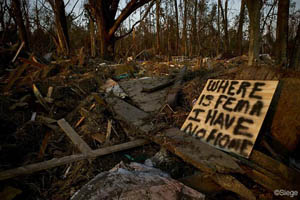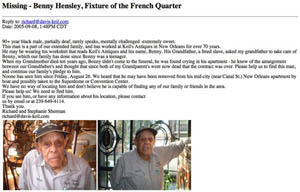It was pointed out to me the other day that Facebook has started its own free classified ad service, Facebook Marketplace (must be logged in), a sort of in-network Craigslist poised to capitalize on a built-in userbase of over 20 million. Commenting on this, Nicholas Carr had another thought:
But if Craigslist is a big draw for Facebook members, my guess is that Wikipedia is an even bigger draw. I’m too lazy to look for the stats, but Wikipedia must be at or near the top of the list of sites that Facebookers go to when they leave Facebook. To generalize: Facebook is the dorm; Wikipedia is the library; and Craigslist is the mall. One’s for socializing; one’s for studying; one’s for trading.
Which brings me to my suggestion for Zuckerberg [Facebook founder]: He should capitalize on Wikipedia’s open license and create an in-network edition of the encyclopedia. It would be a cinch: Suck in Wikipedia’s contents, incorporate a Wikipedia search engine into Facebook (Wikipedia’s own search engine stinks, so it should be easy to build a better one), serve up Wikipedia’s pages in a new, better-designed Facebook format, and, yes, incorporate some advertising. There may also be some social-networking tools that could be added for blending Wikipedia content with Facebook content.
Suddenly, all those Wikipedia page views become Facebook page views – and additional ad revenues. And, of course, all the content is free for the taking. I continue to be amazed that more sites aren’t using Wikipedia content in creative ways. Of all the sites that could capitalize on that opportunity, Facebook probably has the most to gain.
I’ve often thought this — not the Facebook idea specifically, but simply that five to ten years (or less) down the road, we’ll probably look back bemusedly on the days when we read Wikipedia on the actual Wikipedia site. We’ve grown accustomed to, even fond of it, but Wikipedia does still look and feel very much like a place of production, the goods displayed on the factory floor amid clattering machinery and welding sparks (not to mention periodic labor disputes). This blurring of the line between making and consuming is, of course, what makes Wikipedia such a fascinating project. But it does seem like it’s just a matter of time before the encyclopedia starts getting spun off into glossier, ad-supported packages. What other captive audience networks might be able to pull off their own brand of Wikipedia?



